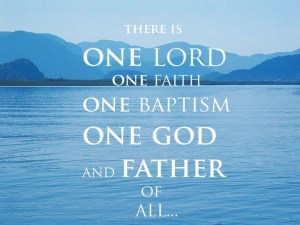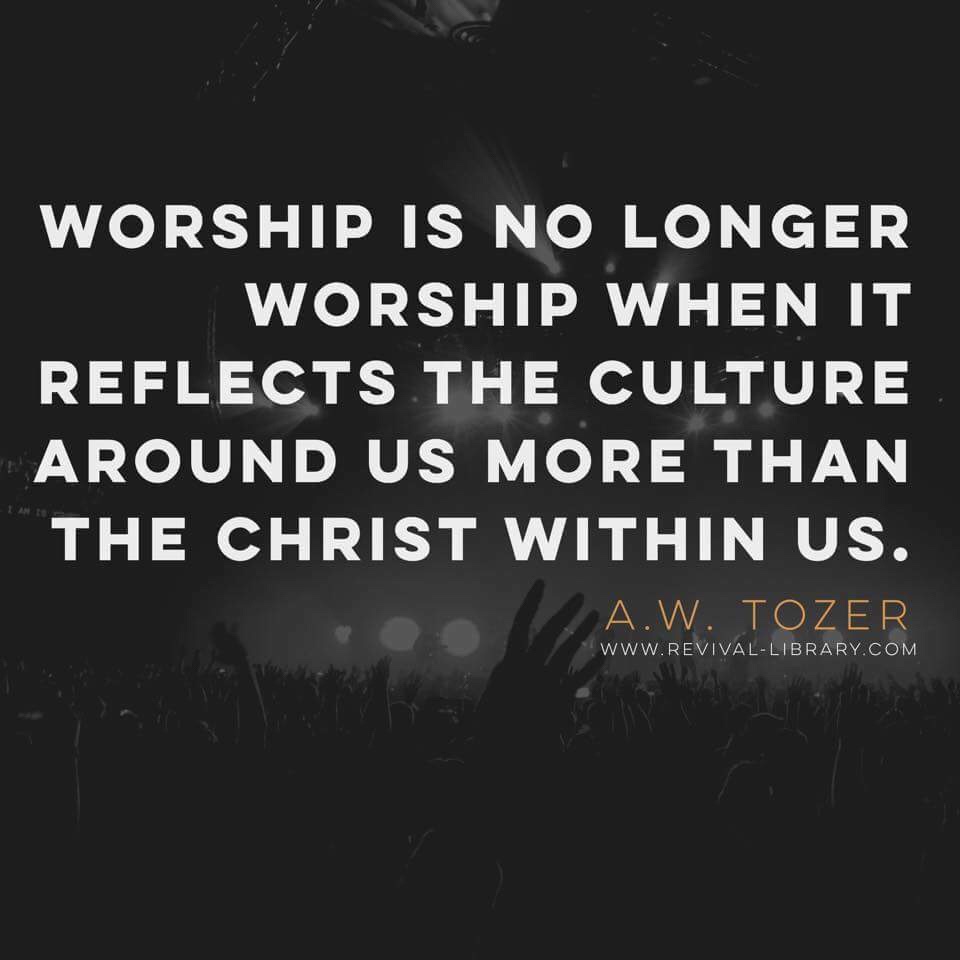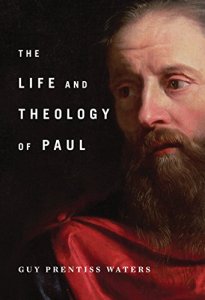You Can Listen to this Sermon Here.
Much of the on-going theological debate about the Sabbath is focused on the weekly day of  rest given to national Israel and whether or not it was changed in day, scope, and application in the New Covenant. But the idea of Sabbath is much greater and more significant than this, though mostly overlooked. This neglect actually ends up making too much of the day and too little of the One Who gives rest. Consider how YHWH commanded national Israel to give the land which He had given them a Sabbath rest every 7th year:
rest given to national Israel and whether or not it was changed in day, scope, and application in the New Covenant. But the idea of Sabbath is much greater and more significant than this, though mostly overlooked. This neglect actually ends up making too much of the day and too little of the One Who gives rest. Consider how YHWH commanded national Israel to give the land which He had given them a Sabbath rest every 7th year:
Leviticus 25:1-7 The LORD spoke to Moses on Mount Sinai: “Speak to the Israelites and tell them: When you enter the land I am giving you, the land will observe a Sabbath to the LORD. You may sow your field for six years, and you may prune your vineyard and gather its produce for six years. But there will be a Sabbath of complete rest for the land in the seventh year, a Sabbath to the LORD: you are not to sow your field or prune your vineyard. You are not to reap what grows by itself from your crop, or harvest the grapes of your untended vines. It must be a year of complete rest for the land. ⌊Whatever⌋ the land ⌊produces during⌋ the Sabbath year can be food for you—for yourself, your male or female slave, and the hired hand or foreigner who stays with you. All of its growth may serve as food for your livestock and the wild animals in your land.
Note that, during the Sabbath year, the people of Israel could not take anything that was produced by plants that they had cultivated BUT they would live off the produce from those plants they had NOT cultivated – those that YHWH had provided. This reflects the same doctrine as the weekly Sabbath – rest from working to provide sustenance and trust God; the same message Jesus spoke in the Sermon on the Mount, wherein He was describing life in the New Covenant and told people that those therein should not worry about your life, what you will eat or what you will drink; or about your body, what you will wear. Isn’t life more than food and the body more than clothing? (Matt 6:25) This last sentence reveals that He was speaking of the New Covenant, where life is spiritual and eternal and IS more than food and drink and clothing. Certainly life in this age requires food and drink and clothing, and even these the Father provides richly.
So the nation of Israel was to work the land for 6 years, then give it a Sabbath rest, following the pattern and purpose of the weekly Sabbath. Throughout their history they failed to obey either of these commanded rests and their exile was directly related to this:
2 Chronicles 36:11-21 Zedekiah was 21 years old when he became king and reigned 11 years in Jerusalem. He did what was evil in the sight of the LORD his God and did not humble himself before Jeremiah the prophet at the LORD’s command. He also rebelled against King Nebuchadnezzar who had made him swear allegiance by God. He became obstinate and hardened his heart against returning to Yahweh, the God of Israel. All the leaders of the priests and the people multiplied their unfaithful deeds, imitating all the detestable practices of the nations, and they defiled the LORD’s temple that He had consecrated in Jerusalem. But Yahweh, the God of their ancestors sent word against them by the hand of His messengers, sending them time and time again, for He had compassion on His people and on His dwelling place. But they kept ridiculing God’s messengers, despising His words, and scoffing at His prophets, until the LORD’s wrath was so stirred up against His people that there was no remedy. So He brought up against them the king of the Chaldeans, who killed their choice young men with the sword in the house of their sanctuary. He had no pity on young men or young women, elderly or aged; He handed them all over to him. He took everything to Babylon—all the articles of God’s temple, large and small, the treasures of the LORD’s temple, and the treasures of the king and his officials. Then the Chaldeans burned God’s temple. They tore down Jerusalem’s wall, burned down all its palaces, and destroyed all its valuable articles. He deported those who escaped from the sword to Babylon, and they became servants to him and his sons until the rise of the Persian kingdom. This fulfilled the word of the LORD through Jeremiah and the land enjoyed its Sabbath rest all the days of the desolation until 70 years were fulfilled.
Israel had disregarded nearly ever commandment given them, had mistreated the poor, and worshipped the demonic idols of the pagan nations – which they were commanded NOT to do. Law incites people to sin by telling you what you may not do.
Did you catch this one thing in that prophecy: the Chaldeans burned God’s temple. They tore down Jerusalem’s wall. When Jesus spoke of every stone in the temple being overthrown, this scene where the Chaldeans burned God’s temple and tore down Jerusalem’s wall must have been playing in the minds of the Jews who heard Him. Even though YHWH had never commanded Israel to build a stone temple, He condescended to use it and honor it. Yet the stone temple, just as the stone tablets, were not super-spiritual and not everlasting; they and everything else in the Levitical religion pointed to One Who was greater than all and would make all things new.
The length of their exile was pegged to the yearly Sabbath they had forsaken. Jeremiah prophesied this, as we read in Jer. 25:11-12; 29:10-14 This whole land will be a desolation and a horror, and these nations will serve the king of Babylon seventy years. ‘Then it will be when seventy years are completed I will punish the king of Babylon and that nation,’ declares the LORD, ‘for their iniquity, and the land of the Chaldeans; and I will make it an everlasting desolation… “For thus says the LORD, ‘When seventy years have been completed for Babylon, I will visit you and fulfill My good word to you, to bring you back to this place. ‘For I know the plans that I have for you,’ declares the LORD, ‘plans for welfare and not for calamity to give you a future and a hope. ‘Then you will call upon Me and come and pray to Me, and I will listen to you. ‘You will seek Me and find Me when you search for Me with all your heart. ‘I will be found by you,’ declares the LORD, ‘and I will restore your fortunes and will gather you from all the nations and from all the places where I have driven you,’ declares the LORD, ‘and I will bring you back to the place from where I sent you into exile.’
This was the declaration of God – national Israel will be punished for disobedience, the land will be left without human cultivation, and God’s time-table would determine when and how restoration would take place. When the 70 years were up, Daniel prayed to God and confessed the sins of his people, knowing God would be faithful to keep His promise and return the Jews to Jerusalem. What Daniel didn’t see clearly was that the fulfillment of Jeremiah’s prophesy would not be fulfilled until David’s Son and Lord would complete His redemptive work. Acts 15:12-18 shows how Amos’ prophecy about the rebuilding of David’s tent was actually about inclusion of Gentiles in the kingdom of God. All of which was told to Abram but forgotten by national Israel.
Lev 25 reveals the ultimate expression of Sabbath blessings for national Israel. Release of debt, freedom of slaves, etc. I will read much of this chapter to give us a sense of the weight of the laws governing Sabbaths and the relief this year of Jubilee promised.
Leviticus 25:8-22 “You are to count seven sabbatical years, seven times seven years, so that the time period of the seven sabbatical years amounts to 49. Then you are to sound a trumpet loudly in the seventh month, on the tenth ⌊day⌋ of the month; you will sound it throughout your land on the Day of Atonement. You are to consecrate the fiftieth year and proclaim freedom in the land for all its inhabitants. It will be your Jubilee, when each of you is to return to his property and each of you to his clan. The fiftieth year will be your Jubilee; you are not to sow, reap what grows by itself, or harvest its untended vines. It is to be holy to you because it is the Jubilee; you may ⌊only⌋ eat its produce ⌊directly⌋ from the field. “In this Year of Jubilee, each of you will return to his property. If you make a sale to your neighbor or a purchase from him, do not cheat one another. You are to make the purchase from your neighbor based on the number of years since the last Jubilee. He is to sell to you based on the number of ⌊remaining⌋ harvest years. You are to increase its price in proportion to a greater amount of years, and decrease its price in proportion to a lesser amount of years, because what he is selling to you is a number of harvests. You are not to cheat one another, but fear your God, for I am Yahweh your God. “You are to keep My statutes and ordinances and carefully observe them, so that you may live securely in the land. Then the land will yield its fruit, so that you can eat, be satisfied, and live securely in the land. If you wonder: ‘What will we eat in the seventh year if we don’t sow or gather our produce?’ I will appoint My blessing for you in the sixth year, so that it will produce a crop sufficient for three years. When you sow in the eighth year, you will be eating from the previous harvest. You will be eating this until the ninth year when its harvest comes in.
Leviticus 25:39-43 “If your brother among you becomes destitute and sells himself to you, you must not force him to do slave labor. Let him stay with you as a hired hand or temporary resident; he may work for you until the Year of Jubilee. Then he and his children are to be released from you, and he may return to his clan and his ancestral property. They are not to be sold as slaves, because they are My slaves that I brought out of the land of Egypt. You are not to rule over them harshly but fear your God.
Leviticus 25:47-55 “If a foreigner or temporary resident ⌊living⌋ among you prospers, but your brother ⌊living⌋ near him becomes destitute and sells himself to the foreigner living among you, or to a member of the foreigner’s clan, he has the right of redemption after he has been sold. One of his brothers may redeem him. His uncle or cousin may redeem him, or any of his close relatives from his clan may redeem him. If he prospers, he may redeem himself. The one who purchased him is to calculate ⌊the time⌋ from the year he sold himself to him until the Year of Jubilee. The price of his sale will be ⌊determined⌋ by the number of years. It will be ⌊set⌋ for him like the daily wages of a hired hand. If many years are still left, he must pay his redemption price in proportion to them based on his purchase price. If only a few years remain until the Year of Jubilee, he will calculate and pay the price of his redemption in proportion to his ⌊remaining⌋ years. He will stay with him like a man hired year by year. A foreign owner is not to rule over him harshly in your sight. If he is not redeemed in any of these ⌊ways⌋, he and his children are to be released at the Year of Jubilee. For the Israelites are My slaves. They are My slaves that I brought out of the land of Egypt; I am Yahweh your God.
Those who are down and out, poor and vulnerable, are not to be mistreated – because they belong to YHWH. They could be forced to work for wages but not treated as slaves. At the appointed time, the year of Jubilee, they were to be released. Jews who sell themselves as slaves to Gentiles were to be redeemed, calculating the price based on the year of Jubilee. Twice they were reminded of how YHWH brought His people out of slavery in Egypt with a mighty hand, how they are to treat people right because of their fear of YHWH their God. This was to keep them from thinking too highly of themselves and too little of one another.
Numbers 36:1-4 The family leaders from the clan of the descendants of Gilead—the son of Machir, son of Manasseh—who were from the clans of the sons of Joseph, approached and addressed Moses and the leaders who were over the Israelite families. They said, “Yahweh commanded my lord to give the land as an inheritance by lot to the Israelites. My lord was further commanded by Yahweh to give our brother Zelophehad’s inheritance to his daughters. If they marry any of the men from the ⌊other⌋ Israelite tribes, their inheritance will be taken away from our fathers’ inheritance and added to that of the tribe into which they marry. Therefore, part of our allotted inheritance would be taken away. When the Jubilee comes for the Israelites, their inheritance will be added to that of the tribe into which they marry, and their inheritance will be taken away from the inheritance of our ancestral tribe.”
Jubilee meant return of inheritance, land that had been surrendered according to the law of the nation. It was the year of the Lord’s favor! The nation had been given a weekly Sabbath, a 7th year Sabbath, and a 50th year Sabbath; the entire Sabbath structure was to teach them to trust YHWH for the things of this world that we need. One thing you might not know: until the early 20th century, mortgages in this country ran 7 years – because of the Sabbath land law given Israel. As part of the human reaction against everything of God, bankers thought it was smart to extend mortgages and see the size of loans grow accordingly. Houses got larger, more expensive, and took 30 years rather than 7 years to pay off. Look at how many people live over their heads in debt because they pay 30 years on a house, 7 years on a car, and 15 years on credit cards. Cars are not sold much on price any more, but on monthly payments. These terms are evidence of fleshly desires to have stuff and not to count the cost – only the ability, today, to pay for it each month. This is slavery.
Jubilee was the promise of being set free from these debts, set free from the laws that regulated Israel. Yet whether it was a mortgage that was refinanced, a car that was replaced, or another cycle of hard work until the next Sabbath, the temporal Jubilee could only whet one’s appetite for the spiritual, eternal Jubilee that would mean true freedom for the souls of the saints. When you read Leviticus, does your soul ache for Christ? The Spirit intends that!
But did Jesus say or do anything that established Himself as our Jubilee, or is this idea a theological fabrication?
You recall, right after He was baptized by John, Jesus was led by the Holy Spirit to the wilderness, where He was tempted by Satan. Almost immediately after the temptation, Jesus was teaching in their synagogues, being acclaimed by everyone (Luke 4:15). Then He entered into the synagogue, as was His custom, in Nazareth – the city of His birth.
He walked in and stood up, indicating He was ready to read. (Luke 4:17) The scroll of the prophet Isaiah was given to Him, and unrolling the scroll, He found the place where it was written, in Isaiah 61, which details these Jubilee blessings and declared that His coming had fulfilled those promises! Isaiah 61:1-2 The Spirit of the Lord GOD is on Me, because the LORD has anointed Me to bring good news to the poor. He has sent Me to heal the brokenhearted, to proclaim liberty to the captives and freedom to the prisoners; to proclaim the year of the LORD’s favor. Jesus stopped quoting Isaiah at the point wherein prophecy was fulfilled at that time. The latter part of verse 2 will be fulfilled when He returns to judge the nations, gather His people, and make all things new: and the day of our God’s vengeance; to comfort all who mourn.
Luke 4:20-21 He then rolled up the scroll, gave it back to the attendant, and sat down. And the eyes of everyone in the synagogue were fixed on Him. He began by saying to them, “Today as you listen, this Scripture has been fulfilled.”
Luke 4:22-23 They were all speaking well of Him and were amazed by the gracious words that came from His mouth, yet they said, “Isn’t this Joseph’s son?” Then He said to them, “No doubt you will quote this proverb to Me: ‘Doctor, heal yourself. ⌊So⌋ all we’ve heard that took place in Capernaum, do here in Your hometown also.’” Jesus was not seeking to impress or please these people who were amazed at His words; He was rather abrupt with them. He went on to recite two incidents from their history. The first was where the widow of Sidon was taken care of because Elijah was sent to her, but not to any in Israel who were in great need. Secondly was the occasion of the Syrian leper, Naaman, who was cured of leprosy while many lepers in Israel were not cured. In both cases, God had miraculously cared for Gentiles while not doing so for many in Israel.
The point was not glorification of Israel; it was the glorious redemptive plan of YHWH that Jesus was beginning to unveil before them. All the jubilee promises from Leviticus 25 meant nothing to them. This man, by His very presence, threatened their plush lives and positions of influence. And for this they wanted to kill Him.
Luke 4:28-30 When they heard this, everyone in the synagogue was enraged. They got up, drove Him out of town, and brought Him to the edge of the hill that their town was built on, intending to hurl Him over the cliff. But He passed right through the crowd and went on His way. Again, we see Jesus focused on a mission that is not focused on the creature. Not only did He not try to impress the home crowd, He drew two incidents from Israel’s history to show them YHWH had people from among the Gentiles, that national Israel was not the end-game for the God of Abraham, Isaac, and Jacob. The Jews hated the thought – remember how Jonah reacted when YHWH told him to go to Nineveh? And so they tried to kill Jesus. But it was not His time – His work had only begun.
When John’s disciples asked if Jesus was the promised one (while John was in jail), Luke 7:22-23 (HCSB) He replied to them, “Go and report to John the things you have seen and heard: The blind receive their sight, the lame walk, those with skin diseases are healed, the deaf hear, the dead are raised, and the poor are told the good news. And anyone who is not offended because of Me is blessed.”
Jesus did send John reassurance but not in the way we might expect, not with words of fleshly comfort. He declared Himself as Lord of the Sabbath as His witness. He brought the age of the true Sabbath, the day of the Lord’s favor! All who are weary and heavy laden can come to Him for rest! Lord of the Sabbath – not merely Lord of the weakly Sabbath, as if that one day a week were a worthy type of rest, in and of itself. The Sabbath rest given national Israel was much more than the weekly day of rest. Even as that day has eschatological meaning, unless we see and grasp the heavy weight lifted by the entire system of the Sabbath – 7th day, 7th year, 50th year – we won’t appreciate what Jesus meant when He said He would set us free. Be not earthly minded, but set your affections on the heavenlies, wherein Christ is.
Jesus was crucified on a high Sabbath (John 19:31), emphasizing His role as the Lord who provides Sabbath/rest for His people. The rest promised in Canaan was a shadow of the rest we have when we come to Christ in faith. The relief promised in the Jubilee Sabbath was nothing more than a shadow of the rest we have when the Spirit of God raises us up from spiritual death to new life in Christ!
At the transfiguration, Peter was, in essence, recognizing Moses and Elijah as Jesus’ equals – tabernacles for each! But God the Father shut Peter up and, with Jesus all by Himself – as the One Who had fulfilled the Law (Moses) and the Prophets (Elijah) – told the apostles to listen to Him! When Jesus had finished the work He had been sent to do, the Old Covenant Law and the Old Covenant prophets had finished their course and were not worthy to have tabernacles built for them along-side of Jesus. If we have a right view of Christ, we will not want anyone or anything – such as undue focus on the Decalogue – to obscure our view of Him. This is the mystery of the Christian life – we are His and He is ours!
Speaking to those who wanted to live as Jews, under the Law of Moses, Paul wrote: Galatians 3:22-26 But the Scripture has imprisoned everything under sin’s power, so that the promise by faith in Jesus Christ might be given to those who believe. Before this faith came, we were confined under the law, imprisoned until the coming faith was revealed. The law, then, was our guardian until Christ, so that we could be justified by faith. But since that faith has come, we are no longer under a guardian, for you are all sons of God through faith in Christ Jesus. Everything in creation is under sin’s power; the earth was cursed because of Adam’s sin. This was to preclude any boasting by any flesh, to make salvation by grace through faith all the more evident. Before Christ came, Jews were kept by the law which served as a guardian – it kept the promised seed secure and pointed them to their Scriptures and the One Who was to come. When He came, the Mosaic Law had finished its course, the type had served its purpose, and the covenant in which that law functioned was swept away as the antitype came and ushered in the New Covenant with its new mediator, new priesthood, and new law. Gentiles, who were never under the Mosaic Law, are a law unto themselves, and do not escape the wrath of God. There is no refuge for man other than Christ Jesus! No matter which law binds up the soul of man, there is only One who can free him. Call upon Jesus – He is the Lamb of God Who takes away sin! Look unto Him, trust your weary soul to Him, believe on Him. He is the Jubilee for your weary soul.
Come, ye sinners, poor and wretched
Weak and wounded, sick and sore
Jesus, ready, stands to save you
Full of pity, joined with power
He is able, He is able
He is willing; doubt no more
Come ye needy, come, and welcome
God’s free bounty glorify
True belief and true repentance
Every grace that brings you nigh
Without money, without money
Come to Jesus Christ and buy
Come, ye weary, heavy laden,
Bruised and broken by the fall
If you tarry ’til you’re better
You will never come at all
Not the righteous, not the righteous
Sinners Jesus came to call
Let not conscience make you linger
Nor of fitness fondly dream
All the fitness He requires
Is to feel your need of Him
This He gives you, this He gives you
‘Tis the Spirit’s rising beam
Lo! The Incarnate God, ascended
Pleads the merit of His blood
Venture on Him, venture wholly
Let no other trust intrude
None but Jesus, none but Jesus
Can do helpless sinners good
 people to see this books as a puzzle which must be put together by finite analysis. I believe John’s Apocalypse is a picture book that reveals the glory and majesty and power and authority of the Christ that our study of this book ought to be aimed at seeing Him more clearly.
people to see this books as a puzzle which must be put together by finite analysis. I believe John’s Apocalypse is a picture book that reveals the glory and majesty and power and authority of the Christ that our study of this book ought to be aimed at seeing Him more clearly. people to see this books as a puzzle which must be put together by finite analysis. I believe John’s Apocalypse is a picture book that reveals the glory and majesty and power and authority of the Christ that our study of this book ought to be aimed at seeing Him more clearly.
people to see this books as a puzzle which must be put together by finite analysis. I believe John’s Apocalypse is a picture book that reveals the glory and majesty and power and authority of the Christ that our study of this book ought to be aimed at seeing Him more clearly.

 you? If anyone destroys God’s temple, God will destroy him. For God’s temple is holy, and you are that temple.
you? If anyone destroys God’s temple, God will destroy him. For God’s temple is holy, and you are that temple.
 promised son of David, yet David’s Lord. He summed up with this “altar call”:
promised son of David, yet David’s Lord. He summed up with this “altar call”:


 New Covenant.
New Covenant. rest given to national Israel and whether or not it was changed in day, scope, and application in the New Covenant. But the idea of Sabbath is much greater and more significant than this, though mostly overlooked. This neglect actually ends up making too much of the day and too little of the One Who gives rest. Consider how YHWH commanded national Israel to give the land which He had given them a Sabbath rest every 7th year:
rest given to national Israel and whether or not it was changed in day, scope, and application in the New Covenant. But the idea of Sabbath is much greater and more significant than this, though mostly overlooked. This neglect actually ends up making too much of the day and too little of the One Who gives rest. Consider how YHWH commanded national Israel to give the land which He had given them a Sabbath rest every 7th year: to partial or final fulfillment in what has been given to New Covenant people – they are there to teach about and point us to Christ. They are intended to give us a richer understanding of how the Bible fits all things together and has a deeper meaning than a superficial read can provide.
to partial or final fulfillment in what has been given to New Covenant people – they are there to teach about and point us to Christ. They are intended to give us a richer understanding of how the Bible fits all things together and has a deeper meaning than a superficial read can provide.

 I highly recommend you visit her blog and
I highly recommend you visit her blog and 

